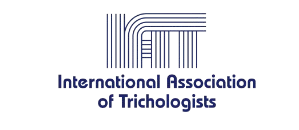
5 Signs You Should See a Trichologist
Taking care of your hair and scalp is essential for both your appearance and overall confidence. While many hair concerns can be managed with over-the-counter products, some issues require the expertise of a trained professional. A certified trichologist specializes in diagnosing and treating hair and scalp problems, helping you achieve healthier hair. Here are five signs that indicate it’s time to see a trichologist.
Excessive Hair Loss
Shedding 50 to 100 hairs a day is normal, but if you notice sudden or continuous heavy hair loss, it could signal an underlying problem. Conditions such as androgenetic alopecia, telogen effluvium, or nutritional deficiencies may be the cause. A trichologist can assess your scalp and hair follicles to identify the root cause and recommend an effective treatment plan.
Persistent Itching or Irritation
If your scalp feels constantly itchy, inflamed, or irritated, it might be due to dandruff, seborrheic dermatitis, psoriasis, or even allergic reactions. These conditions can worsen without proper care, leading to discomfort and even hair damage. A trichologist can provide targeted therapies and advice to soothe your scalp and restore balance.

Noticeable Thinning or Bald Patches
Visible thinning hair or bald spots, whether gradual or sudden, are clear warning signs. These could be signs of alopecia areata, traction alopecia, or other scalp disorders. Early diagnosis and intervention by a trichologist can improve outcomes and prevent further hair loss.
Excessive Oiliness or Dryness
An imbalance in scalp oils can lead to problems like greasy hair, clogged follicles, or a dry, flaky scalp. Such issues often interfere with healthy hair growth and scalp comfort. A trichologist can analyze your scalp condition and recommend treatments or lifestyle changes to restore its natural balance.
Lack of Response to General Hair Care Products
If you’ve tried multiple shampoos, conditioners, or home remedies without improvement, it may be time for a professional evaluation. Some scalp and hair problems require specialized knowledge and treatments beyond standard cosmetic products. A trichologist can customize a care plan based on your specific condition.
Recognizing these signs early and consulting a certified trichologist can make a significant difference in managing your hair and scalp health. Professional guidance helps not only to treat current issues but also to prevent future problems and maintain long-term hair vitality.


